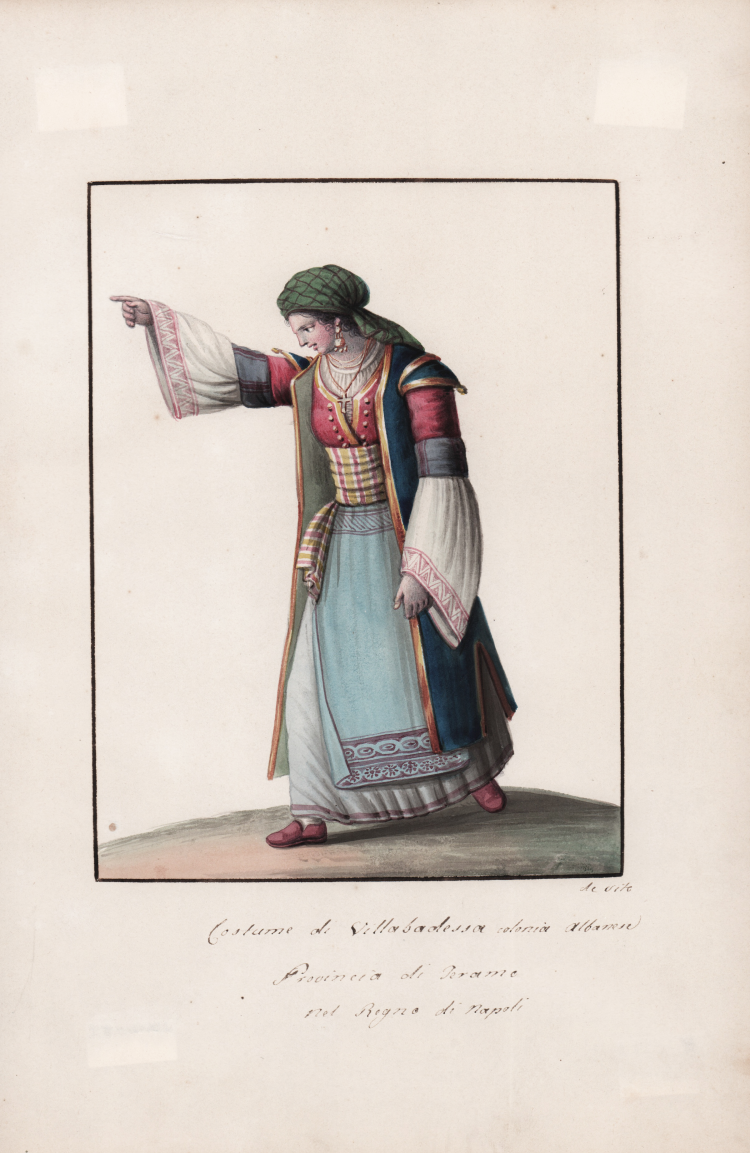



| Reference: | S36125 |
| Author | Michela DE VITO |
| Year: | 1823 ca. |
| Zone: | Villa Badessa |
| Printed: | Naples |
| Measures: | 145 x 190 mm |


| Reference: | S36125 |
| Author | Michela DE VITO |
| Year: | 1823 ca. |
| Zone: | Villa Badessa |
| Printed: | Naples |
| Measures: | 145 x 190 mm |
In the XIX century, Michela De Vito became quite a famous artist. She was maybe the daughter or sister, it is not clear, of Camillo de Vito, an important painter of guaches depicting views and scenes from everyday life. She worked in Naples at the beginning of the XIX century; sometimes she is mistaken with Michele de Vito.
“A refined painter, very skilled when it came to drawings, she had the characteristic to make her subejct more gentle, compared to her male collegues”; this is how De Rosa and Trastulli describe this artist. This gentleness is quite evident in her figures and in their clothes.
Watercolour on paper, signed on lower right. High quality work, in excellent condition.
Michela DE VITO (Attiva a Napoli nei primi decenni del XIX secolo)
|
In the XIX century, Michela De Vito became quite a famous artist. She was maybe the daughter, or sister it is not clear, of Camillo de Vito, a reknown painter of guaches depicting views and scenes from everyday life. She worked in Naples at the beginning of the XIX century; sometimes she is mistaken with Michele de Vito. "A refined painter, very skilled when it came to drawings, she had the characteristic to make her subejct more gentle, compared to her male collegues”; this is how De Rosa and Trastulli describe this artist. This gentleness is quite evident in her figures and in their clothes.
|
Michela DE VITO (Attiva a Napoli nei primi decenni del XIX secolo)
|
In the XIX century, Michela De Vito became quite a famous artist. She was maybe the daughter, or sister it is not clear, of Camillo de Vito, a reknown painter of guaches depicting views and scenes from everyday life. She worked in Naples at the beginning of the XIX century; sometimes she is mistaken with Michele de Vito. "A refined painter, very skilled when it came to drawings, she had the characteristic to make her subejct more gentle, compared to her male collegues”; this is how De Rosa and Trastulli describe this artist. This gentleness is quite evident in her figures and in their clothes.
|